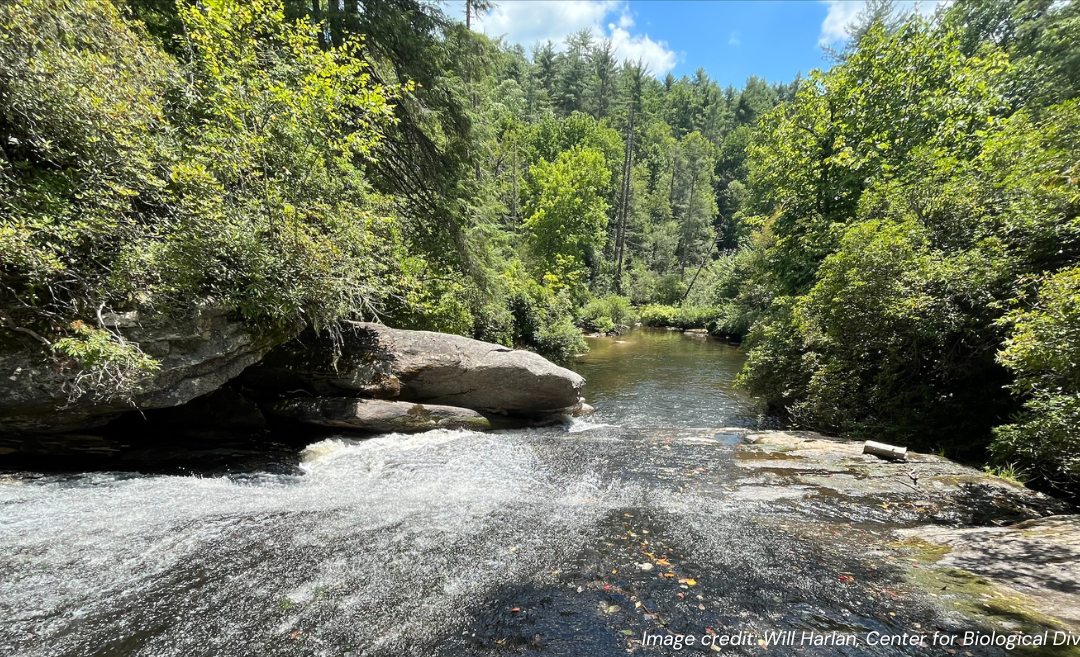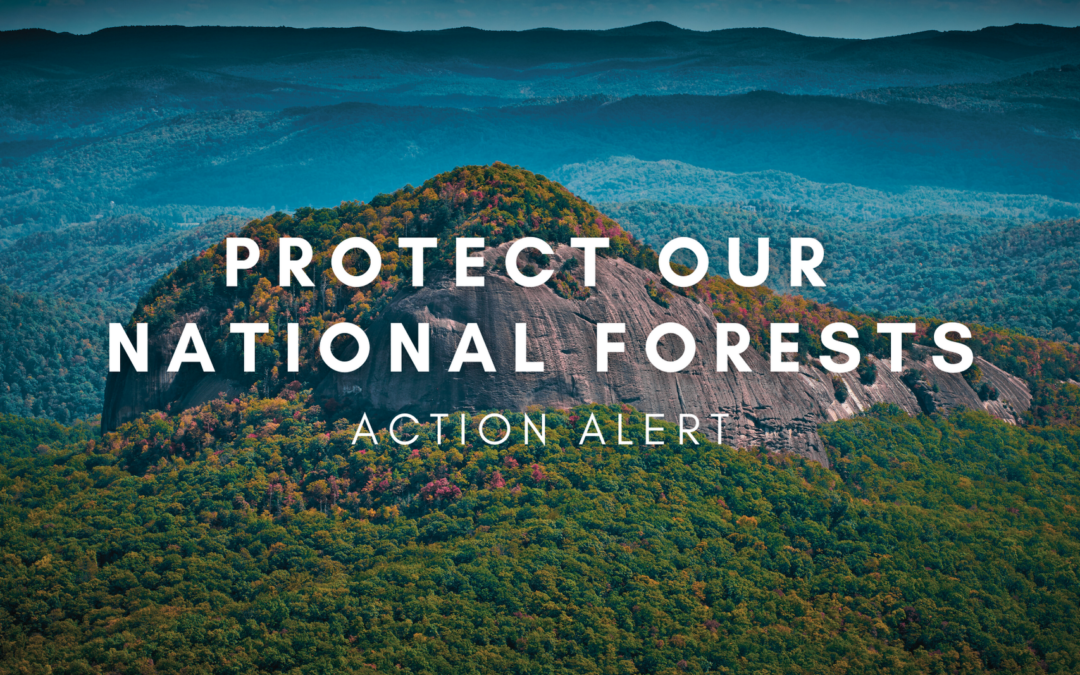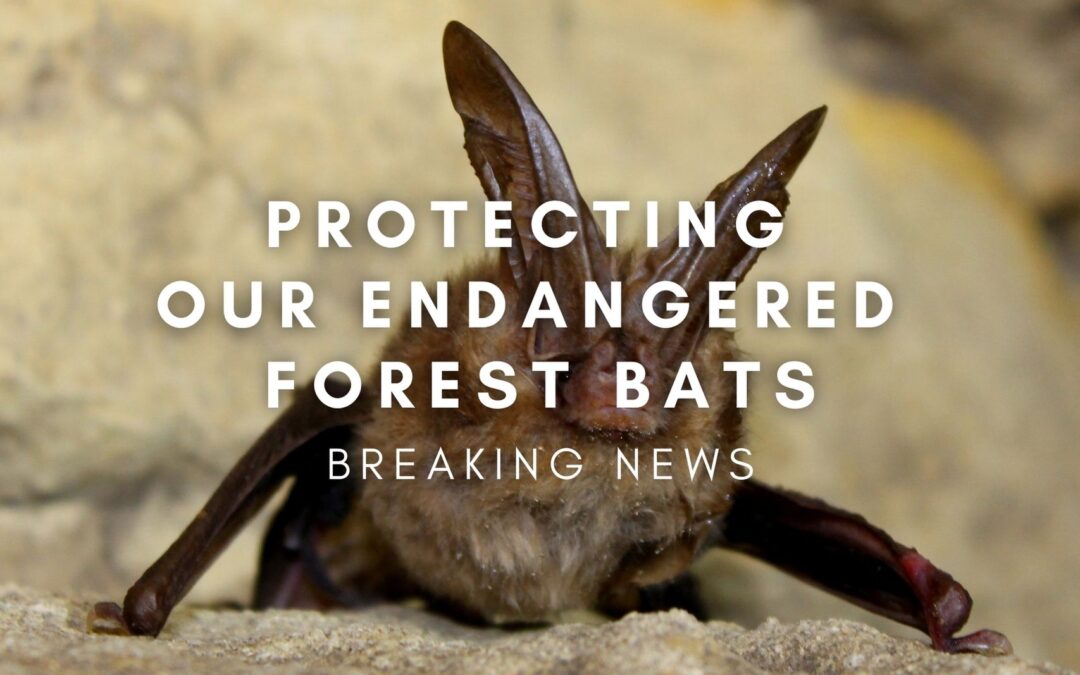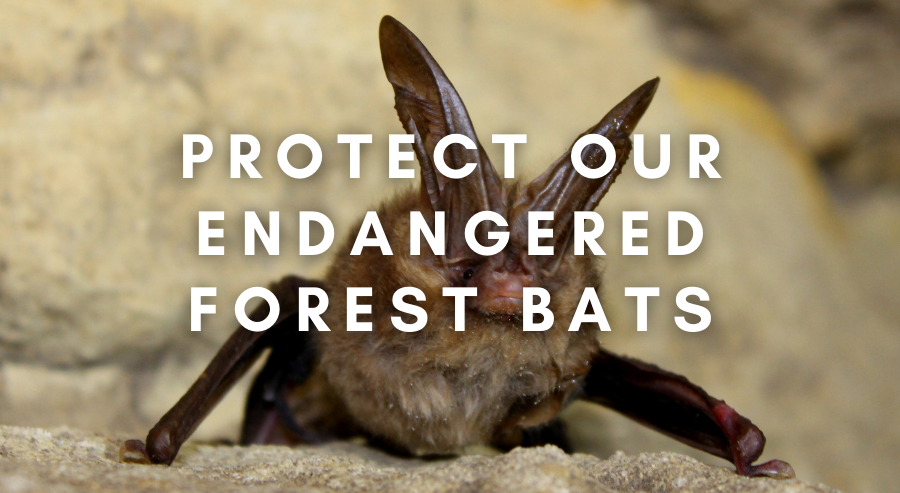
Conservation Groups sue Forest Service over Nantahala-Pisgah Forest Plan’s impact on endangered wildlife
Conservation Groups sue Forest Service over Nantahala-Pisgah Forest Plan’s impact on endangered wildlife
ASHEVILLE, N.C. — This week, a coalition of conservation groups filed a lawsuit over glaring flaws in the Nantahala-Pisgah Forest Plan that put endangered forest bats at risk, following through on a previous 60-day Notice of Intent to Sue letter.
The Nantahala-Pisgah Forest Plan guides the long-term future of two of the nation’s most popular and beloved public lands. Together, the Nantahala and Pisgah National Forests total more than a million acres, contain 1,500 miles of trails, and boast some of western North Carolina’s most iconic destinations. The forests are also major drivers of local economies — each year they attract millions of visitors looking to enjoy the area’s incredible diversity of wildlife.
But the newly published 2023 Forest Plan aims to quintuple the amount of logging in the Nantahala and Pisgah National Forests and puts sensitive areas, including important habitat for endangered forest bats, on the chopping block. Instead of fully studying the impact this massive expansion in logging would have on federally protected bats, the Forest Service relied on incomplete and inaccurate information to downplay the increased risks posed by the new Plan. The agency even ignored data showing where bats are found on the national forests and wrongly assumed that forests outside of the bats’ ranges would make up for cutting their actual habitats.
The flawed analysis clearly violates the Endangered Species Act, which requires federal agencies to use the best available science when considering how their decisions might harm federally protected species.
The northern long-eared bat, Indiana bat, Virginia big-eared bat, and gray bat, which are the focus of this lawsuit, are teetering on the edge of extinction and the Forest Service has admitted that protecting their habitats in the Nantahala and Pisgah National Forests is essential to the species’ survival. The bats are important pieces of these forests’ ecosystems and if they are unable to survive, there will be a domino effect throughout western North Carolina.
The Southern Environmental Law Center filed the case in federal district court for the Western District of North Carolina on behalf of Defenders of Wildlife, MountainTrue, Sierra Club and the Center for Biological Diversity. Statements from the groups are provided below:
“The amazing diversity of wildlife is a major part of what makes the Nantahala and Pisgah National Forests so special. The Forest Service should be doing everything they can to protect the rare and endangered animals that call these forests home, not recklessly putting their habitats on the chopping block.” Sam Evans, Leader of SELC’s National Forests and Parks Program, said. “The Forest Service had a great opportunity to restore forests and protect endangered forest bats, but the agency refused – now we are suing.”
“The U.S. Forest Service is duty bound to conserve species listed under the Endangered Species Act,” said Ben Prater, Southeast Program Director for Defenders of Wildlife. “The revised Nantahala-Pisgah Forest Plan falls short of the obligation to prevent extinction and secure the habitat strongholds that these public lands provide for four critically endangered bat species. The Plan commits us to accelerated logging and road building for the next 20 years, putting these imperiled bats at even greater risk. This is simply unacceptable for endangered bats that so desperately need our best efforts to survive and recover.”
“Sustainable and economically viable commercial logging is not incompatible with protecting our endangered wildlife. Instead, the Forest Service ignored the best available science and withheld critical information from the Fish and Wildlife Service, which oversees endangered species protection. They forced our hand when they broke the law. Now, we’re going to court to protect wildlife and to win a more responsible Forest Management Plan,” Josh Kelly, Public Lands Field Biologist for MountainTrue, said.
“The Pisgah and Nantahala National Forests serve as anchor points for sensitive habitat that protects a marvelous array of plants and wildlife, which are increasingly under pressure. The revised Forest Plan misses the boat for protecting key wildlife by emphasizing activities that fragment and degrade habitat, especially for species that rely on mature and undisturbed forests. The N.C. Sierra Club will continue to work to protect the wildlife and habitats that we cannot afford to lose,” David Reid, National Forests Issue Chair for the Sierra Club, said.
“The Forest Service has prioritized logging over protecting some of the most endangered species on the planet,” said Will Harlan, Southeast Director at the Center for Biological Diversity. “These bats are on the brink of extinction, yet the Forest Service wants to aggressively increase logging in their forest habitats. It is another heartbreaking failure of the Forest Plan.”
Media Contacts:
Southern Environmental Law Center: Eric Hilt, 615-622-1199, ehilt@selctn.org
Defenders of Wildlife: Jay Petrequin, 202-772-0243, jpetrequin@defenders.org
MountainTrue: Karim Olaechea, 828-400-0768, karim@mountaintrue.org
Sierra Club: David Reid, 828-713-1607, daviddbreid@charter.net
Center for Biological Diversity: Will Harlan, 828-230-6818, wharlan@biologicaldiversity.org
###







